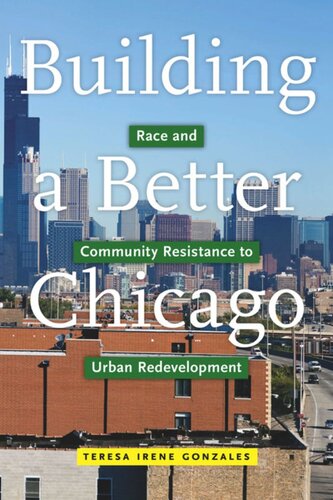

Most ebook files are in PDF format, so you can easily read them using various software such as Foxit Reader or directly on the Google Chrome browser.
Some ebook files are released by publishers in other formats such as .awz, .mobi, .epub, .fb2, etc. You may need to install specific software to read these formats on mobile/PC, such as Calibre.
Please read the tutorial at this link: https://ebookbell.com/faq
We offer FREE conversion to the popular formats you request; however, this may take some time. Therefore, right after payment, please email us, and we will try to provide the service as quickly as possible.
For some exceptional file formats or broken links (if any), please refrain from opening any disputes. Instead, email us first, and we will try to assist within a maximum of 6 hours.
EbookBell Team

5.0
78 reviewsHow local Black and Brown communities can resist gentrification and fight for their interests
Despite promises from politicians, nonprofits, and government agencies, Chicago’s most disadvantaged neighborhoods remain plagued by poverty, failing schools, and gang activity. In Building a Better Chicago, Teresa Irene Gonzales shows us how, and why, these promises have gone unfulfilled, revealing tensions between neighborhood residents and the institutions that claim to represent them.
Focusing on Little Village, the largest Mexican immigrant community in the Midwest, and Greater Englewood, a predominantly Black neighborhood, Gonzales gives us an on-the-ground look at Chicago’s inner city. She shows us how philanthropists, nonprofits, and government agencies struggle for power and control—often against the interests of residents themselves—with the result of further marginalizing the communities of color they seek to help. But Gonzales also shows how these communities have advocated for themselves and demanded accountability from the politicians and agencies in their midst. Building a Better Chicago explores the many high-stakes battles taking place on the streets of Chicago, illuminating a more promising pathway to empowering communities of color in the twenty-first century.